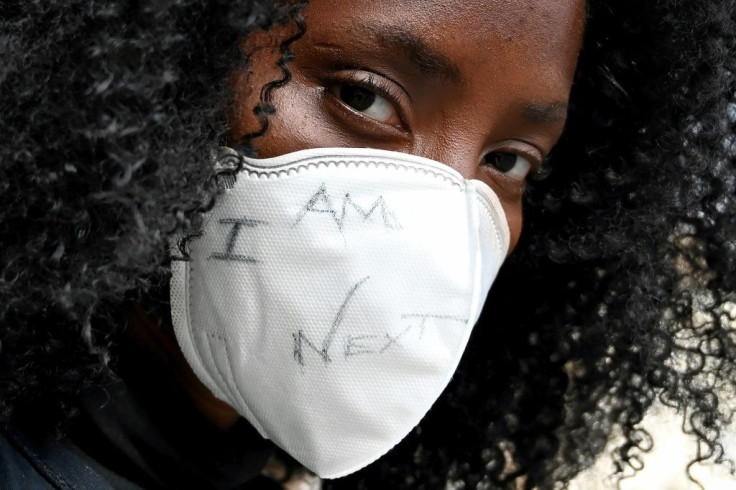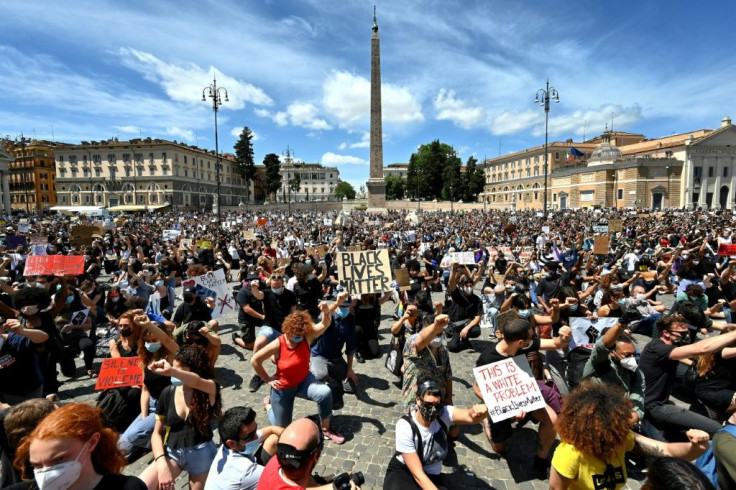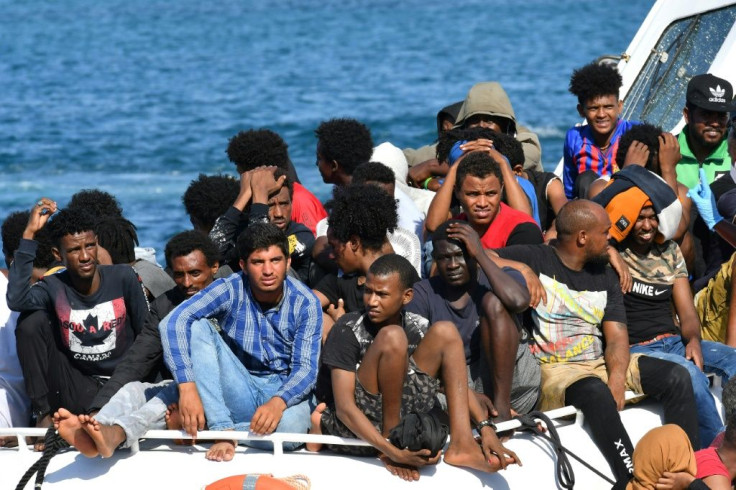In Italy, Legal Migrants Renew Fight To Be True Citizens
Inspired by the Black Lives Matter movement, Italy's second generation of immigrants is renewing the fight for automatic citizenship in a land where migration is at the heart of the political debate.
"Jus soli!", the Latin term which literally means "right of soil," or birthright citizenship, has become the new rallying cry among the children of Italy's 5.3 million legal immigrants.
In early June, thousands of demonstrators marched in Rome in memory of African American George Floyd, who died on May 25 when a white policeman kneeled on his neck for more than eight minutes, triggering an outcry in the United States and around the world.
The march spurred renewed vigour among the children and grandchildren of migrants in Italy, who share the language and country's cultural references but do not have the right to citizenship until they turn 18.
Even then, it is subject to strict conditions and often gained only after a lengthy and heavily bureaucratic process.

"In this country, citizenship is treated not as a right, but a concession," said Fatima Maiga, who was born in Italy but is of Ivorian origin.
Legal immigrants say their plight has been overshadowed by the migrant crisis in the Mediterranean Sea, which since 2014 has seen more than half a million new immigrants arriving on Italy's shores.
They claim their fight for citizenship is also weighed down by anti-immigrant sentiment at home, fomented by the far-right League party, which left government in 2019 after only a year in power.
Of the 5.3 million foreigners living in Italy in 2019, around 1.3 million were under 18 and three quarters of those were born in the country.
Among those most affected are the children of Albanians, Moroccans, Chinese, Indians and Pakistani immigrants.

Maiga, 28, co-founded Italiani Senza Cittadinanza, or Italians Without Citizenship, in 2016 to help second-generation migrants -- known as the G2 -- become Italian.
Under a 1992 law, anyone born in Italy can apply for citizenship at the age of 18, on condition of having legally lived here "without interruption".
However, the process must be launched before they turn 19.
Up until that point, they are given residence permits.
If that window is missed, people can also become a citizen on the grounds of legal residency for a decade and on the condition of a minimum income of 8,500 euros ($10,000) a year over three years.

Nevertheless, the process can take a long time and involve complicated paperwork.
"I applied when I was 18. I had to wait for four years before getting my papers," Marwa Mahmoud, 35, told AFP.
"I know what it's like to live as an Italian in everything but in law," Egyptian-born Mahmoud said.
Mahmoud and others also worry the ongoing migrant crisis -- in which hundreds continue to arrive on Italy's shores every day -- is pushing their own struggle further down the agenda.
The numbers of people arriving in this way have risen by nearly 150 percent over the past year, the majority coming by boat from Tunisia, Italy's interior ministry said last week.
"Our situation is being passed over in silence," Mahmoud lamented.
"Since Italy started getting embroiled in the migrant crisis it's like we're starting at zero again," she said, adding that Italians "tend to put everyone in the same basket".
"But the situation of an unaccompanied minor who arrived yesterday is not comparable with that of an immigrant child born and raised here," she said.
During his year-long tenure in 2018-2019 as interior minister, Matteo Salvini, the head of the League party, pushed through new rules extending the waiting time to process Italian nationality applications from two to four years.
"Nationality is not a ticket to the funfair," Salvini said in 2017.
Supported by the G2 network, Italy's governing centre-left Democratic Party (PD) is now pushing for reforms -- among them, advocating for five-year continuous residency to qualify for citizenship.
But so far, the PD's coalition partner, the anti-establishment Five Star Movement, has been non-committal.
Still, a fairer birthright citizenship system is under discussion in parliament.
But "it's not a priority", said Giuseppe Brescia, a Five Star deputy, who heads parliament's committee on constitutional affairs.
The G2 movement now plans to hold a demonstration on September 19 in the hope of advancing the cause of what it calls Italy's "forgotten non-citizens."
© Copyright AFP 2024. All rights reserved.




















